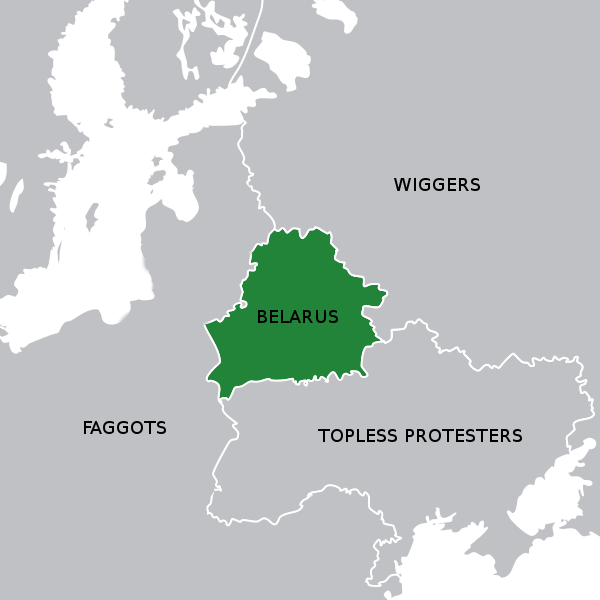
James W. Meng
Home/Resume/CV -- VLNLAB -- Projects -- Abuse by the United States Government -- Writings
Russia Should Invade Ukraine

SPOILER ALERT: all Russia has to do is have their entire army peacefully cross the Ukrainian border, only returning fire when fired upon. Once they cross, informational bulletins should be posted directing Ukrainians to a website with a massive intelligence dump on what the West did to their country since 2004. At that point, a peacekeeping mission similar to the one already stationed in Pridnestrovia should be set up until fully-informed decisions about the future of Ukraine can be made democratically.
The truth, and only the truth, is what will set the Ukrainian people free: their country was used - totally destroyed, really - by the West for a theatrical, symbolic proxy war against old-line Central and Eastern European elites (not really even against Russia itself) since the George W. Bush era. If the disclosures are not made, this obnoxious game of "King of the Mountain" will probably continue, ad nauseam, forever.
Finally, I would like to share an excerpt from a recent letter I wrote to an European Red Cross filial about the bureaucratic and legal implications of such crises in the former USSR:
As you assuredly know, shortly after the fall of the USSR there were two smaller Soviet Socialist Republics that had originally been intended to be territorially and governmentally integrated with larger neighbors – the Abkhazian SSR and the Transnistrian (Pridnestrovan) SSR. Both are conflict zones now, protected by peacekeeping forces provided by the Russian army. Both governments, despite not being recognized by the United Nations, document and register their people as citizens of their governments. Nevertheless, the only valid passport they have available to them for international travel is typically a Russian passport – despite the fact that these people are typically not considered ethnically Russian by Russia, nor are they considered Russian citizens by Russia. They merely are given passports. This is not a matter of corruption, but rather a vestige of the Soviet system wherein national passports (equivalent to contemporary ID cards) were issued by individual Soviet republics, whereas international passports, intended for international travel, were issued by the Soviet authorities at a federal level. Now there are three new such conflict zones – in Ossetia and in Ukraine. These people live in the same circumstances. Most, if they have international travel passports at all, have Russian passports. Some people from the Donetsk and Lugansk republics might be recognized as full Russian citizens by Russia but many may not be, after all, because it is primarily people identifying as ethnically Ukrainian who have fled.
Other cases [of stateless persons] involve situations where a government has revoked the citizenship of a persecuted person. Iran is known for doing this in cases of severe ideological differences. There are also isolated cases of this happening in the former Eastern Bloc, particularly in the states of former Yugoslavia, and in Ukraine and Belarus. And then there are cases wherein someone who has fled then petitions the [European] courts to designate them as stateless persons based on their home country's behavior towards them, alleging that even though their home country will print a passport for them again, other behaviors of their home government are so abusive and discriminatory that they are still stateless in a de facto sense."